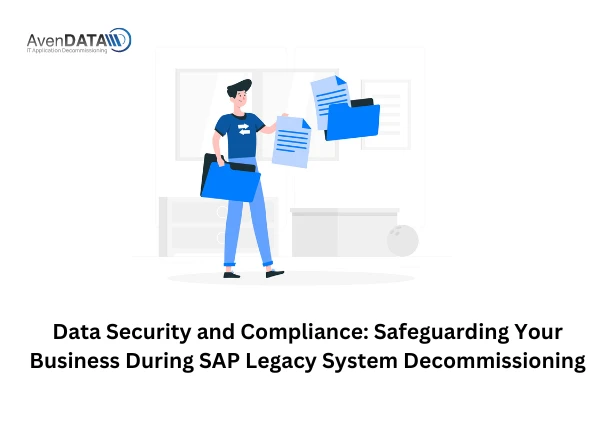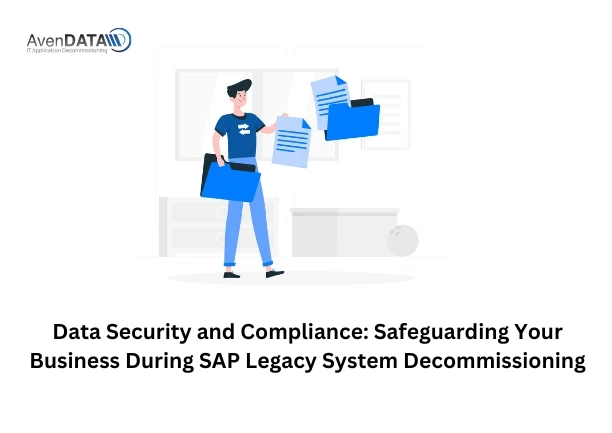
In the rapidly evolving digital landscape, data security and compliance have become paramount for businesses of all sizes. As organizations move towards modernizing their IT infrastructure, SAP legacy system decommissioning has emerged as a strategic initiative to enhance efficiency and reduce operational costs. However, during this process, ensuring the security and compliance of sensitive data becomes a critical concern. In this article, we will explore the importance of data security and compliance during SAP legacy system decommissioning and provide essential guidelines to safeguard your business.
The Significance of Data Security and Compliance
1. Protecting Sensitive Information: SAP legacy systems often contain a wealth of sensitive data, including financial records, customer information, and intellectual property. Ensuring data security prevents unauthorized access and protects your business from potential data breaches.
2. Compliance with Regulations: Businesses must adhere to various data protection and privacy regulations, such as GDPR, HIPAA, or industry-specific requirements. Failure to comply with these regulations can result in severe penalties and reputational damage.
3. Risk Mitigation: Decommissioning legacy systems may involve data migration and archiving. Proper security measures minimize the risk of data loss or corruption during the transition.
Guidelines for Ensuring Data Security and Compliance
1. Data Classification and Inventory: Conduct a comprehensive inventory of all data within the legacy system and classify it based on sensitivity and regulatory requirements. This step enables you to identify critical data that requires heightened security measures during the decommissioning process.
2. Data Encryption: Implement strong encryption protocols for data at rest and in transit. Encryption ensures that even if unauthorized access occurs, the data remains unreadable and unusable.
3. Access Controls: Restrict access to sensitive data to only authorized personnel. Implement role-based access controls to ensure that users can only access the data necessary for their specific roles.
4. Secure Data Archiving: During the decommissioning process, archive historical data in a secure storage solution. This ensures data preservation for compliance purposes while reducing the risk of unauthorized access.
5. Data Disposal: Safely dispose of hardware or storage media containing data from the decommissioned system. Use secure data erasure methods to prevent data leaks.
6. Regular Auditing and Monitoring: Conduct regular security audits to identify vulnerabilities and address them promptly. Implement continuous monitoring to detect any suspicious activities that may indicate a security breach.
7. Data Protection Impact Assessment (DPIA): Perform a DPIA to assess the potential risks associated with data processing during the decommissioning process. This assessment helps identify and mitigate security and compliance risks.
8. Data Retention Policies: Define clear data retention policies aligned with regulatory requirements. Ensure that data is retained only for as long as necessary and disposed of when no longer needed.
9. Employee Training and Awareness: Educate employees about data security best practices and the importance of compliance. Create a culture of data security and ensure that employees understand their role in safeguarding sensitive information.
Conclusion
As organizations transition from SAP legacy systems to modern platforms, data security and compliance must remain at the forefront of the decommissioning process. By following the guidelines outlined in this article, businesses can safeguard their valuable data, protect their reputation, and comply with regulatory requirements. SAP legacy system decommissioning becomes a secure and seamless journey, empowering businesses to focus on growth, innovation, and delivering value to their customers with confidence. Prioritizing data security and compliance lays a strong foundation for success in the digital era.


